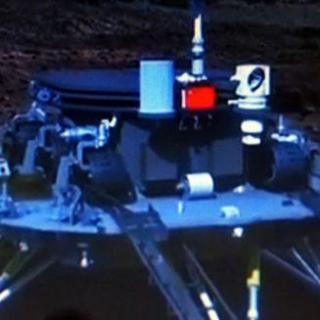
介绍:
NL: As we’ve heard, the plan is to send a spacecraft to orbit Mars, make a landing and then deploy a rover as early as 2020. So how do all those plans sound to you? How feasible do you think this project is?
MJ: Well, these are very ambitious plans. China is planning a very complex and sophisticated mission, but I believe that China can do it. I mean, China has one of the world’s most advanced space programs, they’ve already landed a probe on the moon, they’ve already operated a rover on the moon, they know how to perform atmospheric entry. So many Chinese spacecraft have returned to Earth after decades. So the thing is, China already has most of the technology in place to do this Mars mission, and it won’t take much more for China to reach that goal. I’m sure they’ll do it.
LK: Compared with the United States and Russia, China is probably a latecomer in this field. So what are the reasons for China to achieve so much within such a short period of time?
MJ: Well, for one thing, China doesn’t have to reinvent the basic strategies or technology. We know what Mars is like; we know the basics of how to design a Mars mission. And there’s also the fact that even though China is a relative latecomer to exploring Mars, China is not a latecomer to spaceflight. China has been launching rockets and satellites. After decades, it has a human spaceflight program. It operates satellites of every description: communications, weather monitoring, scientific observatories. So China has a long and a very broad history of experience with spaceflight.
NL: At a similar time to the unveiling of the Chinese project, a NASA-funded study in Hawaii completed a Mars simulation with astronauts. What do you think is the value of these kinds of projects, and how soon might we see real astronauts heading up to Mars?
MJ: Well, it’s going to be a very long time before astronauts from any nation go to Mars. It won’t happen in ten years; the way things are going, I don’t think it will happen even in twenty years, because despite all these simulations, we don’t have the basic technology for life support or surface operations, and it’s going to take a lot more basic research to get that technology. As well as that, you’ve got the tremendous cost, which will be far higher than flying to the moon or building a space station. So it’s going to be a long time before any of that happens, but there is a strategic race in the sense that every nation likes to compete. But I think the most interesting strategic race for Mars exploration is not about sending astronauts there, or anything that America or Russia is doing. It’s probably the strategic space race in Asia, and China is an important part of that. I mean, let’s look at what’s happened in this century. In 2003, the Japanese tried to send a spacecraft to Mars, just a simple orbiter, and that failed. And then we had this attempt by China, in 2011, to piggyback a spacecraft on a Russian mission, and that also failed. The Indians saw a window of opportunity to be the first Asian nation to reach Mars, and they did that in 2014. So China is coming back with a mission that’s bigger and better than anything else that any Asian nation has done before it. So I think there’s a bit of rivalry there with other Asian nations, but there’s also the fact that even without those early omissions, China’s first deep space missions are always better than a simple mission, because they have the technology to take a big step forward on the first step.
大家还在听

